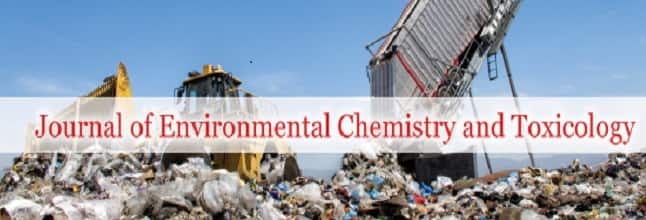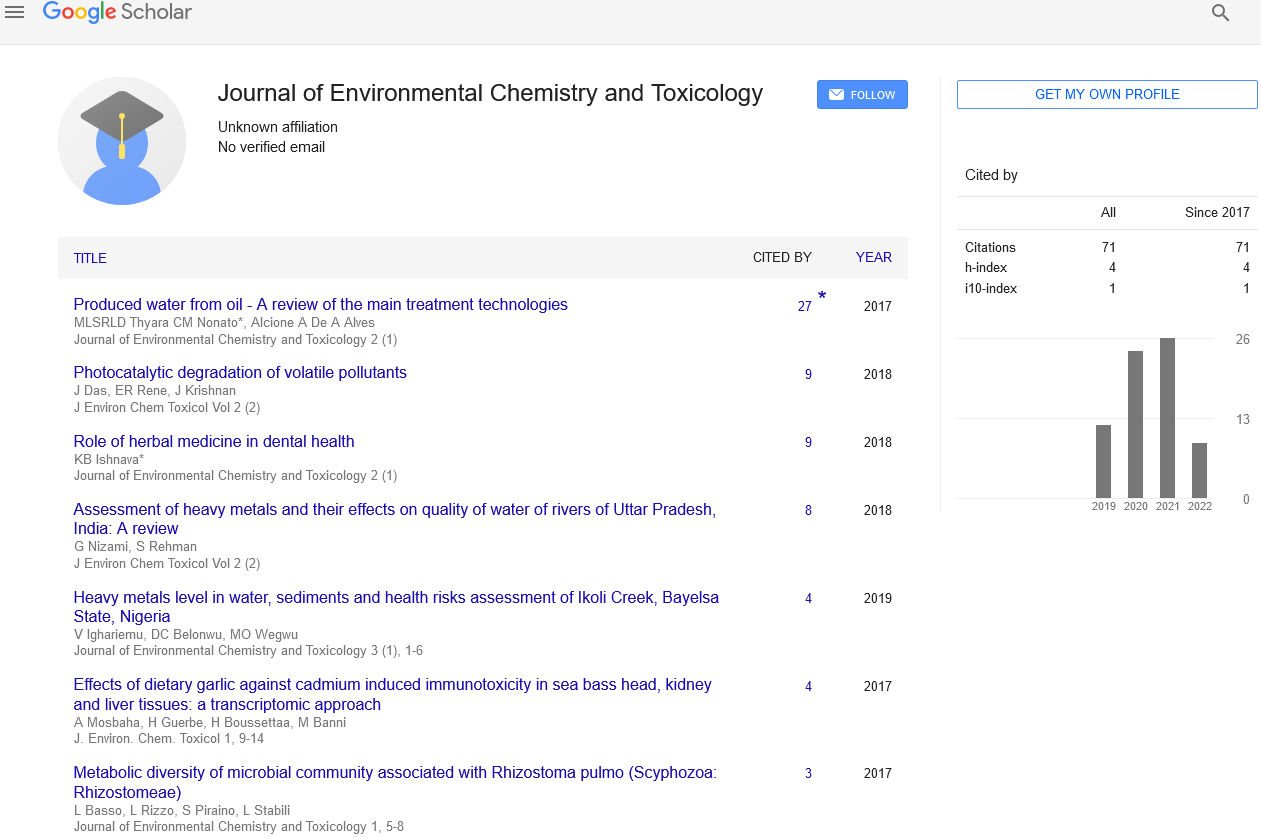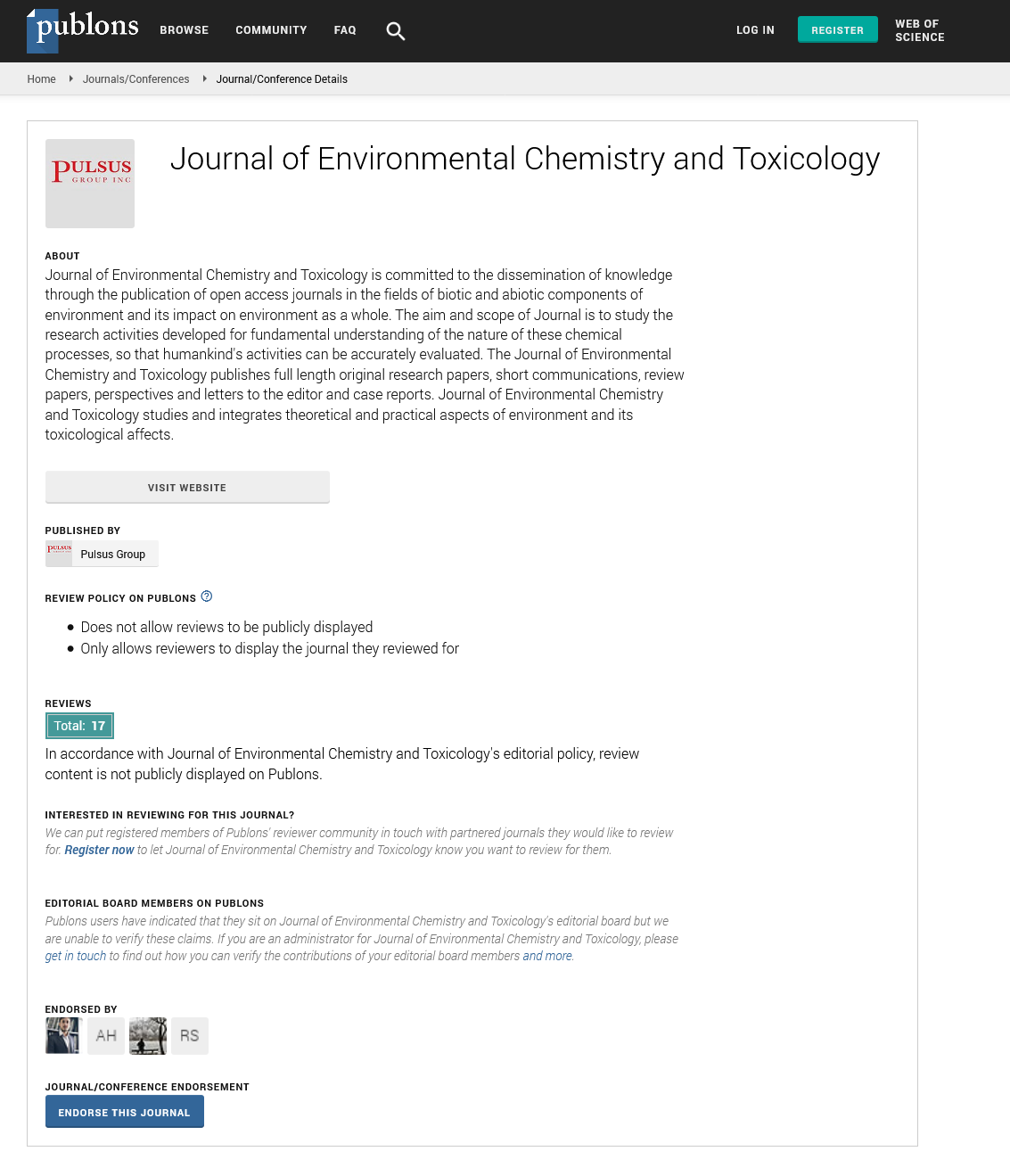
Sign up for email alert when new content gets added: Sign up
Abstract
Effect of Glyphosate Herbicide on Nitrogen Fixing Bacteria-Azotobacter Species
Author(s): Adero VO*, Raju NS and Supreeth MBackground: Glyphosate, a broad-spectrum, nonselective, systemic herbicide, exists in the form of acid or salt and the most widely used herbicide in the world to control weeds especially grasses. It kills plants by interfering with the synthesis of the aromatic amino acids phenylalanine, tyrosine, and tryptophan in the shikimate pathway by inhibiting the enzyme 5-enolpyruvylshikimate-3-phosphate synthase (EPSPS), which catalyzes the reaction of shikimate-3-phosphate (S3P) and phosphoenolpyruvate to form 5-enolpyruvyl-shikimate-3-phosphate (EPSP). Azotobacter, a gram negative, genus of motile, oval or spherical shaped aerobic, free-living soil microbes, play important role in nitrogen fixation. The use of glyphosate to control weeds has been thought to have effects on the growth and survivability of Azotobacter and hence this study was carried out to assess these effects.
Methods: Soil samples were taken from the top layer (0-15 cm) of a sugarcane and rice field and Azotobacter species isolated using Ashby’s glucose agar then these were cultured using Ashby’s mannitol agar. The bacteria were identified by morphological characterization and biochemical characterization (catalase test) thereafter mass culturing was dine using Luria Bertani hi-veg broth and incubated for 24 hours. Assessment of effect of glyphosate on the bacteria was done using agar well method and soil amendments method.
Results: All 5 colonies isolated were gram negative rods to oval or coccoid in shape, catalase positive and appeared whitish slimy, raised and glistering, orange to red and grey to dark brown in colour. At higher concentrations, glyphosate 41%, (without dilution) had an inhibitory effect on the growth of Azotobacter but at field dose it does not inhibit their growth. At field dose or higher doses, (double dose or triple dose) glyphosate enhance the growth of Azotobacter.
Conclusion: The use of glyphosate to control weeds at field dose or slightly higher doses will have a growth enhancing effect on Azotobacter bacteria while at higher elevated concentrations it will have growth inhibiting effect.
Full-Text | PDF





